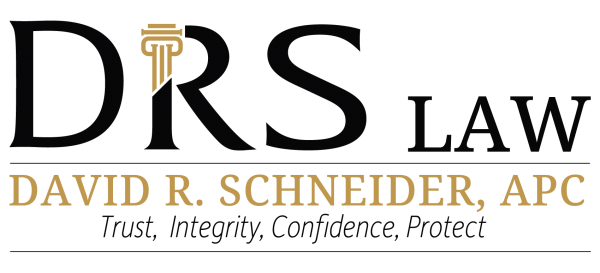What is to be Titled in the Name of Your Trust
What should I title in my trust? When should I title an asset in my trust? Do I need to title my bank account in the name of my trust? Do I need to title all of my accounts in the name of my trust? What about my cars? What about my IRA? These are just some of the questions I hear and review with clients when they complete their estate plan – I often hear these questions more than once and it can be confusing for a layperson.
Generally speaking, we want you to title as many assets as possible into the name of your trust. There are some exceptions to assets that could be titled in the name of the trust, the most common being your car, but, for the most part, if it can be titled to your trust, it should be.
We start by discussing the difference between the classes of assets; all assets fall into one of three categories non-qualified assets, life insurance and a tax-qualified asset.
Non-Qualified Assets
Non-qualified assets, also referred to as after-tax, and post-tax assets, are those which you have already paid income tax on e.g., checking, savings, CDs, money markets, and brokerage accounts. This is the money left over on Friday after you got paid, and had your taxes and benefits withheld – your take-home paycheck. These accounts should all be re-titled into the name of your revocable trust.
Common questions are “Do I have to change all of my accounts” or “Can I leave one account in my own name and not the name of the trust.” At the time when the Settlor of the trust dies or has become incapacitated and the successor trustee has to deal with the financial institutions, it is far simpler when the asset is titled in the name of the trust than not. I have real-world experience in this with the majority of financial institutions in CA, and the financial institutions prefer the formality of the trust, as it gives them the certainty they require.
When clients express a desire to not title an account in the name of the trust, I often ask them why they would wish to deviate from the instructions. Common answers are ‘It is a small account,’ ‘It is an account that I do not use,’ or ‘I want to keep something in my own name.’ These can all be translated into “I don’t want to do this.” This is certainly a decision left up to the client, but if it is a small account, consolidate it with another account; if you don’t use it, close it. As for keeping something in your own name – the trust is in your name. After you’ve spent the time and money to develop your estate, you need to follow through and fund these assets in the name of your trust.
One exception to the transfer of a non-qualified asset is a car, boat, or small airplane less than the probate threshold of 185k for personal property. Most vehicles are valued less than the probate threshold and are of temporary ownership. Further, re-titling the car in the name of the trust requires a visit to the DMV which we all know can take several hours and usually does not lend to a happy day. Lastly, the DMV, surprisingly, has a reasonable paperwork solution for dealing with the car of a decedent.
Tax-Qualified Assets
“The opposite of non-qualified assets are tax-qualified assets – such as IRAs, 401ks, deferred compensation plans, and tax-sheltered annuities – on which you have not yet paid taxes. These are tax-deferred assets, and our federal government does not permit them to be titled in the name of a revocable trust. However, it’s important to note that in some specific circumstances, irrevocable trusts can be designated as beneficiaries for these types of assets. This is an essential consideration, particularly for estate planning purposes, as irrevocable trusts offer different benefits and are subject to different regulations compared to revocable trusts.
Tax-qualified assets must be owned individually by a person, not jointly. One of the advantages of these assets is that they offer tax deferral for maximum growth potential and they pass directly to a named beneficiary upon the owner’s death, thereby avoiding probate proceedings if there is a surviving beneficiary.
In cases where families have young or immature children, we might recommend naming the revocable trust as the beneficiary of a tax-deferred asset. This is different from the asset being owned by the trust. While the asset remains owned by the individual, the trust can be the beneficiary. Similarly, under certain conditions, an irrevocable trust might also be designated as a beneficiary, depending on the client’s specific needs and goals. This strategic approach can provide a level of control and protection for the assets, particularly when managing the inheritance for younger beneficiaries.”
Life Insurance
Life insurance lies in the middle between the non-qualified and qualified assets. Life insurance should name the trust as the beneficiary. There are a few special sets of circumstances where we may counsel a client differently e.g., divorce settlement, buy-sell agreements, pre and post-nuptial agreements, and special needs trusts. In the large majority of instances, the beneficiaries receiving through the trust agreement are just as protected, the assets avoid probate proceedings, and the trust contains all of the important back-up provisions e.g., a beneficiary predeceases, a beneficiary is the next generation and lacks maturity. The life insurance proceeds are received income tax-free, as it is not income except in very special circumstances, so all of our decisions are based on proper management of the assets.
You spent good money and time developing your estate plan. The most common failure is the lack of follow-through by the client. Follow your counsel’s advice, get this important function done and complete the process.
Estate planning consultations are available virtually and in the office, and David is happy to help clients throughout California. He has helped thousands of families set and achieve their estate planning goals. David sees clients by appointment only to ensure that each has his undivided attention. Contact us to schedule a free consultation today at 805-374-8777 or dschneider@drs-law.com. We look forward to hearing from you and helping you set up your comprehensive estate plan, including a trust, a pour-over will, durable power of attorney, advanced healthcare directive, and nomination of a guardian and special needs trust, where needed.

